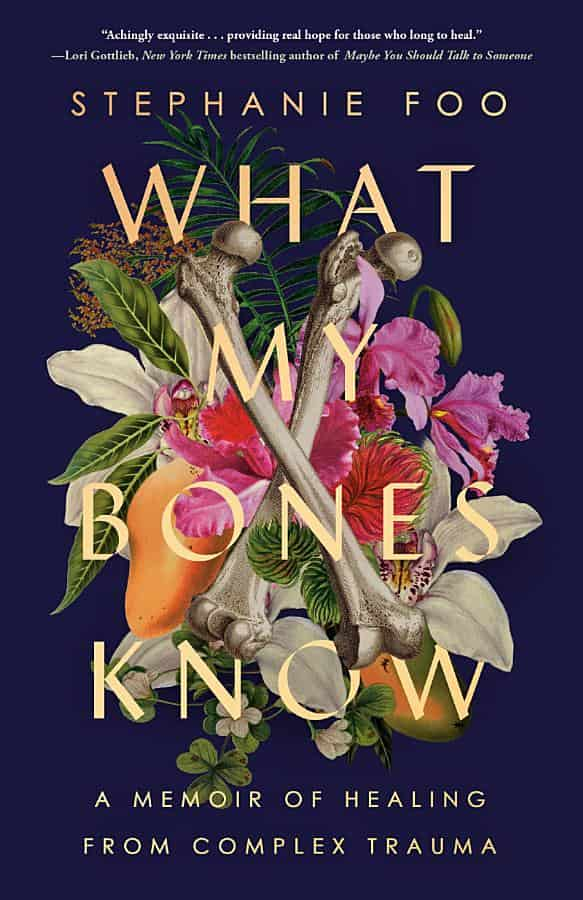Incredible memoir. One of the best books I’ve read about healing from abuse, dysfunction, and trauma. So much to relate to on every page (and not just because she had the same Jimmy Eat World song as a lifeline in the early aughts).
It’s heartbreaking and eye-opening that her upbringing (Asian, middle-class, immigrant; raised in what she correctly calls the wreckage of America’s brutal proxy wars against communism) is almost a 1:1 overlap with what was going on behind the scenes for almost everyone I knew growing up (white, middle-class, evangelical; basically the inheritors of the “American dream”).
The punishment, dysfunction, shame, rejection, generational trauma, and often the outright abuse (sexual, physical, mental) that just got silenced and covered up. When kids need literally the exact opposite to survive: love, acceptance, safety, trust, respect. A voice.
I am a product of a place. I am one of many. All of us are victims of a dysfunctional community that was very good at throttling itself while murmuring, “Smile through your tears. Swallow your pain.”
It is within this normalcy, this transformation of a unique misery into the utterly banal, that I finally feel empowered. Maybe I can change my programming after all. Because the more common the disease, the more survivors there must be. A whole damn neighborhood can’t go down together in its entirety, can it? There have to be people who escape the stranglehold.
It’s so validating when the key things that help her heal are the same things I’ve discovered. Note: she does not break it down into 1-2-3 steps for healing; these are my own notes, a list I made when what worked for her has worked for me as well:
- Self-regulation (calming your nervous system, creating an internal sense of safety)
- Curiosity (instead of judging or shutting down emotions, befriend them and listen to them; learn who you are when no one else is around)
- Compassion (every trigger has a purpose; learn to ask “what is this? What is this thing in my body right now? What are you trying to teach me?”)
- Communication (complex trauma is fundamentally relational trauma—people who were supposed to be caring and trustworthy and safe were hurtful instead; practice healthy relationships)
- Agency (you have power, you have choice, you have a voice)
- Love (love, love, love, in abundance, for others, for yourself; the opposite of shame, blame, and fear is love)
There’s no single magic fix; there’s a mix of what works for each person at various points in their lives. But there is healing, and hope, and I love her definition of both:
So this is healing, then, the opposite of the ambiguous dread: fullness. I am full of anger, pain, peace, love, of horrible shards and exquisite beauty, and the lifelong challenge will be to balance all of those things, while keeping them in the circle. Healing is never final. It is never perfection. But along with the losses are the triumphs.
Pull quotes: ⚭
It’s okay to have some things you never get over. In the span of half an hour, this man whom I had known for less than a season did what nobody in my life ever had: He took all of my sins and simply forgave them. He didn’t demand relentless improvement. There were no ultimatums. He asserted that I was enough, as is. The gravity of it stunned me into silence. Joey was the opposite of the dread.
My family tried to erase this history. But my body remembers. My work ethic. My fear of cockroaches. My hatred for the taste of dirt. These are not random attributes, a spin of the wheel. They were gifted to me with purpose, with necessity.
I want to have words for what my bones know. I want to use those gifts when they serve me and understand and forgive them when they do not.
The brain’s fear reflex is very real. But it has an opposite force, too, as ancient and as powerful. Our bodies and brains melt into kindness in the presence of one key ingredient. “This school made me feel like I was somewhere where people actually loved me.”
But more and more, I am curious enough to ask the magic question: “What do you need?” These four words open doors and break down walls. With the benefit of understanding, we are no longer two separate beings floating through these threads alone. We are giving and receiving. Two reciprocal atoms hugging each other through the turmoil around us. I hurt you. You hurt me. You’re mine.
PTSD is only a mental illness in times of peace.
